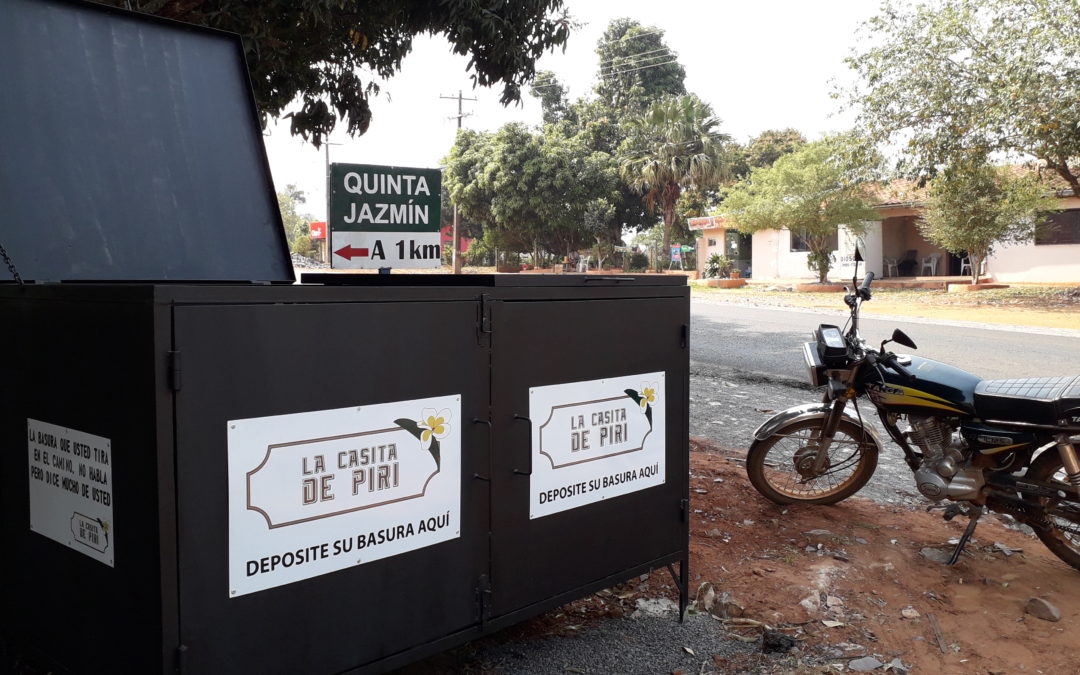Paraguay has always been a place where the unwanted was simply burnt. Household rubbish or grasslands.
This every year causes problems as fires set to clear land for agriculture burn out of control.
It has long been seen that the cheapest and quickest way to clear weeds and stubble for replanting has been with fire. That may be true but inevitably some of fires escape and burn out of control across large areas of countryside.
Land owners have continued to do this with little concern as to the environmental damage an uncontrolled fire may do to the land. Every year through winter and spring the fires rage. Often in the same areas year after year allowing them no chance of recovery.
The area of land alight varies from year to year. Winter is the dry season in Paraguay and the dryer it is the more combustible material there is around.
In a wetter year there is less chance of a fire burning over a large area for there is a higher likelihood it will meet something damp and inflammable. In a dry year the situation is reversed and the dryer the year the greater the danger.
This year has been a very dry winter. It has been many months since there was any substantial rain. As such much of the countryside is tinderbox dry and any fire that does take hold will be large and almost unstoppable.
An additional problem bought about by the current drought is that all the rivers and wells are far lower than normal. This has left far less water available to fight any fires that may break out.
The Paraguayan firefighters are all volunteers. This year they have been pushed far beyond what they would normal be asked to do.
The drought, the large number of fires burning out of control and the strain placed upon every single firefighter has finally focused minds into doing something about it. Measures have been brought in to discourage to lighting of fires and so to reduce the numbers that are burning.
Prior to outlining those there is also the matter of domestic refuse fires to discuss. They also can get out of control causing fires to rush across the countryside. Furthermore it can sometimes be difficult to draw a distinction between what is a household fire and what is an agricultural one.
Even when these fires are kept strictly under control the produce more pollution than a burning grassland. Whilst in the past much household waste would have been vegetable matter it is now predominantly plastic in the form of bags and packaging. Burning of these produces noxious and poisonous fumes.
So bad has it become at times this year with the fumes from burning plastics mixing with the smoke from grass fires that a thick smog has descended upon Asuncion and other cities across the country.
On a number of occasions pollution warnings have been issued. The populous has been advised to stay indoors with doors and windows firmly shut.
Against this background laws and regulations have been bought into effect across the country to prevent a similar event occurring in the future. The general ruling is to prohibit all fires but it appears that local districts of deciding how that is to be enacted.
Here in Piribebuy a very clear and simple line has been taken. All fires of any type have been banned and hefty fines will be handed out to anyone discovered burning one, or to have been the culprit of one now extinguished.
Exactly how it will be in forced with the limited manpower of the council and police is yet to be shown. There have been some hints that neighbours should inform on neighbours but personally I feel it more likely that a few high profile prosecutions will be made as a deterrent to others.
This is all good news but left one question unanswered. How then to dispose of household waste? The towns refuse truck only collects from the town center and many of the towns residents live out in the countryside far from that.
I spoke of the matter to the council as soon as the new rules were announced. The best unfortunately they could suggest was bringing bags of rubbish into town to drop in one of the bins there. Not really ideal but as a temporary solution it would have worked.
Clearly though I was not the only one be asking the question. Within a few days one of the local guest houses, La Casita de Piri, had arranged for a large waste collection bin to be installed in front of their gates for the public to use. And the council truck is coming out once a week to empty it.
This means that I and others living nearby now only have to make a short trip in order to get rubbish disposed of properly. Had this not been made available rubbish strewn roadsides was very much a possibility.
I now hope that amongst the people of Paraguay this will soon become a habit and that we can all look forward to a cleaner pollution free land.
Unfortunately as yet I am unaware of what plans have been put in place for dealing with agricultural waste. Land will still need to be cleared for planting and the nutrients locked up in weeds and dried grass still need returning to the soil to replace those washed out by the rains.
It is though a very positive start and a solid foundation to built upon.


Recent Comments